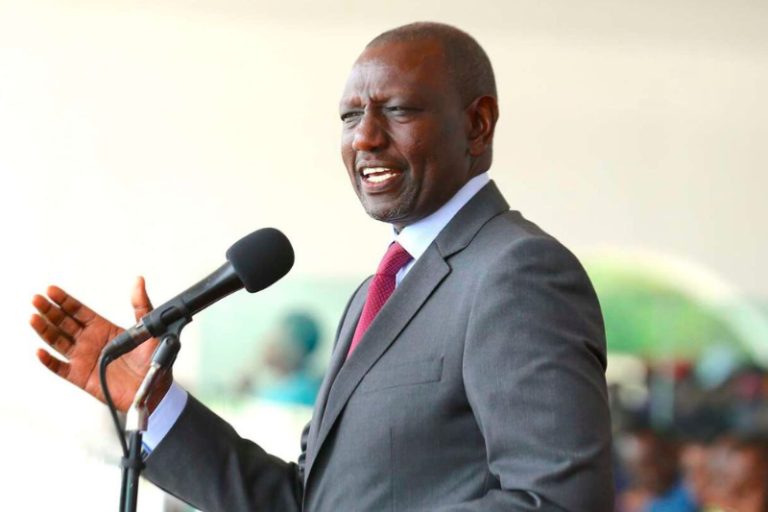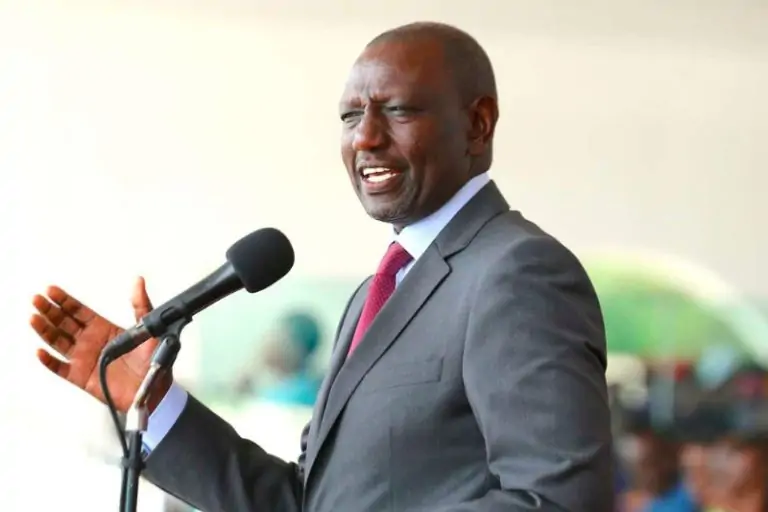

advancing a borderless africa president rutos vision (2)
President William Ruto of Kenya champions the vision of a borderless Africa, emphasizing the need for unrestricted movement of goods and people across the continent. His advocacy aligns with the principles of Pan-Africanism, aiming to overcome colonial legacies and foster economic integration.
President Ruto has consistently articulated his Pan-African vision on various platforms, emphasizing the economic benefits of eliminating borders and promoting intra-African trade. His stance reflects a shift towards prioritizing economic freedom and cooperation among African nations.
While Ruto’s vision is ambitious, challenges such as colonial legacies, bureaucratic hurdles, and varying national interests pose significant obstacles. However, initiatives like the African Union’s Agenda 2063 and the African Continental Free Trade Area (AfCFTA) offer frameworks for overcoming these challenges and advancing towards a borderless Africa.
President Ruto’s advocacy for a borderless Africa resonates with the broader push for Pan-African unity and economic integration. Despite implementation challenges, his leadership underscores the importance of fostering cooperation among African nations to realize the continent’s full economic potential.
President Ruto’s vision of a borderless Africa is not just about political rhetoric; it’s deeply rooted in the economic imperative. By promoting free movement of goods and people, he aims to unlock the continent’s vast economic potential. Currently, intra-African trade remains disproportionately low compared to other regions, hindering Africa’s ability to leverage its resources and talents effectively.
Ruto’s advocacy for open borders is supported by tangible efforts such as the elimination of visas for travelers from certain countries and the promotion of regional economic blocs like the East African Community. These initiatives lay the groundwork for increased trade, investment, and economic growth across Africa.
One of the biggest challenges President Ruto faces in realizing his vision is overcoming historical barriers entrenched by colonial powers. The arbitrary borders drawn by colonialists continue to shape political and economic landscapes, often hindering intra-African cooperation and development. However, Ruto’s push for open borders and regional integration signals a break from the past and a step towards a more unified and prosperous Africa.
While progress may be gradual, recent initiatives such as the African Passport and the AfCFTA demonstrate a growing commitment among African leaders to transcend colonial legacies and foster continental unity. Through concerted efforts and political will, President Ruto and his counterparts are laying the foundation for a borderless Africa that benefits all its citizens.
The U.S.-based driver training company Zutobi analyzed road safety worldwide and found South Africa stays last in driving danger since…
The Basketball Africa League (BAL) returns for its 2025 season with exciting changes and developments. Since 2019 the NBA-linked basketball…
The Somali president supports their military forces to eliminate the threats from Al-Shabaab, ISIS, and Al-Qaeda. The Somali National Army…
UAE President Sheikh Mohamed bin Zayed Al Nahyan held talks with President Faustin Archange Touadéra of the Central African Republic…
African football teams struggle intensely in the World Cup Qualification rounds to earn their place on the international football stage.…
The journey toward the 2026 FIFA World Cup is rapidly intensifying for all African teams, who now hold a historical…
This website uses cookies.